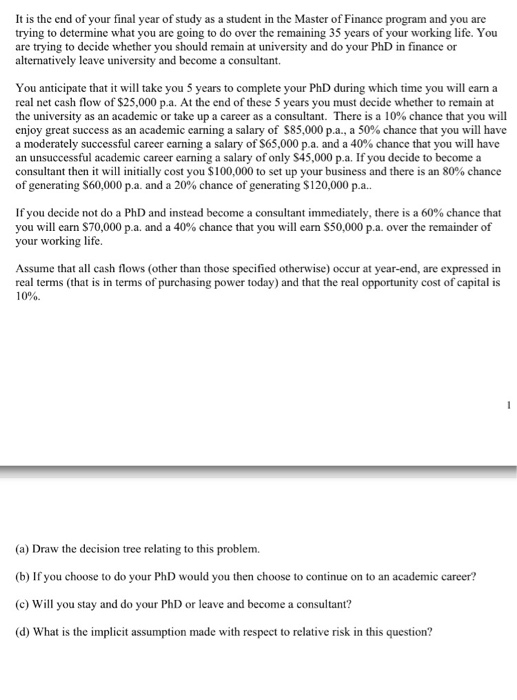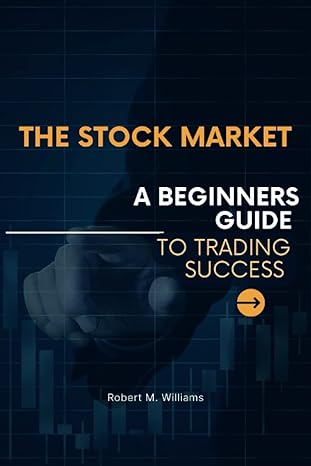Answered step by step
Verified Expert Solution
Question
1 Approved Answer
It is the end of your final year of study as a student in the Master of Finance program and you are trying to determine
It is the end of your final year of study as a student in the Master of Finance program and you are trying to determine what you are going to do over the remaining 35 years of your working life. You are trying to decide whether you should remain at university and do your PhD in finance or alternatively leave university and become a consultant......

Step by Step Solution
There are 3 Steps involved in it
Step: 1

Get Instant Access to Expert-Tailored Solutions
See step-by-step solutions with expert insights and AI powered tools for academic success
Step: 2

Step: 3

Ace Your Homework with AI
Get the answers you need in no time with our AI-driven, step-by-step assistance
Get Started


